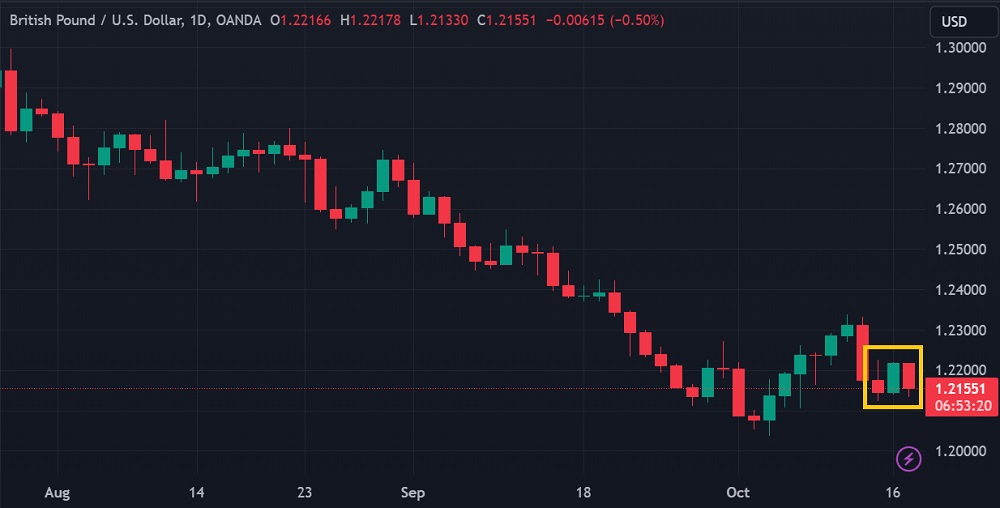The delay of some employment reports today triggered a crisis of confidence in the accuracy of UK economic data. GBP/USD weakened as a result.
The US dollar is trying to regain strength this week, while the British pound remains near multi-month lows. GBP/USD is trading below the 1.2200 threshold as of the end of the European session on Tuesday (October 17), still within the range it has been in since the end of last week.

Sterling traders had been eagerly awaiting the release of a package of UK labor market reports today. However, authorities decided to postpone the release of most of the data until next week.
The UK Office for National Statistics (ONS) only released data on average earnings with and without bonuses based on HM Revenue & Customs records. This data showed a slowdown in wage growth from 8.5% to 8.1% in August 2023, whereas the previous consensus had expected 8.3%.
The slowdown in wage growth indicates diminishing inflationary pressure, further eroding the prospects of interest rate hikes. This is a negative development for the Pound. Moreover, the delay in releasing some labor market reports today has raised concerns about the accuracy of British economic data.
The Financial Times reported that ONS suddenly postponed the release of Unemployment Rate, Unemployment Claims, and various other survey-based labor force data, citing the need for more time to "produce the best estimates."
Darren Morgan, Director of Economic Statistics Analysis and Production at ONS, told The Financial Times that the delay was "because we want to be sure about the data we release" and was unrelated to previous data. However, he acknowledged that recent LFS data did deviate from other data.
The most noticeable deviation was the sharp increase in the unemployment rate during the summer, while other data indicated a stronger labor market in the UK. Many have also questioned the consistency of other data.
A Bank of England (BoE) official had previously expressed doubts about the accuracy of ONS data. BoE's Chief Economist, Huw Pill, expressed his skepticism on Monday about the data on average wage growth exceeding 8%, while other data indicated weaker wage pressures.

 Dedicated FREE FOREX VPS
Dedicated FREE FOREX VPS Free FOREX Virtual Private Server
Free FOREX Virtual Private Server MT4 Demo Contest, Get $500
MT4 Demo Contest, Get $500 Sign Up for an Account, Claim 60% Deposit Bonus
Sign Up for an Account, Claim 60% Deposit Bonus Free MT4/MT5 VPS 2024
Free MT4/MT5 VPS 2024 Send E-mail and Get Free Merchandise
Send E-mail and Get Free Merchandise $1K Refer a Friend Bonus for Pepperstone Pro clients
$1K Refer a Friend Bonus for Pepperstone Pro clients Maximize Your Earnings with 100% Deposit bonus
Maximize Your Earnings with 100% Deposit bonus Trade to Win, $5,000 Monthly Demo Contest
Trade to Win, $5,000 Monthly Demo Contest Claim 30% + 15% Deposit Bonus from LiteFinance
Claim 30% + 15% Deposit Bonus from LiteFinance






